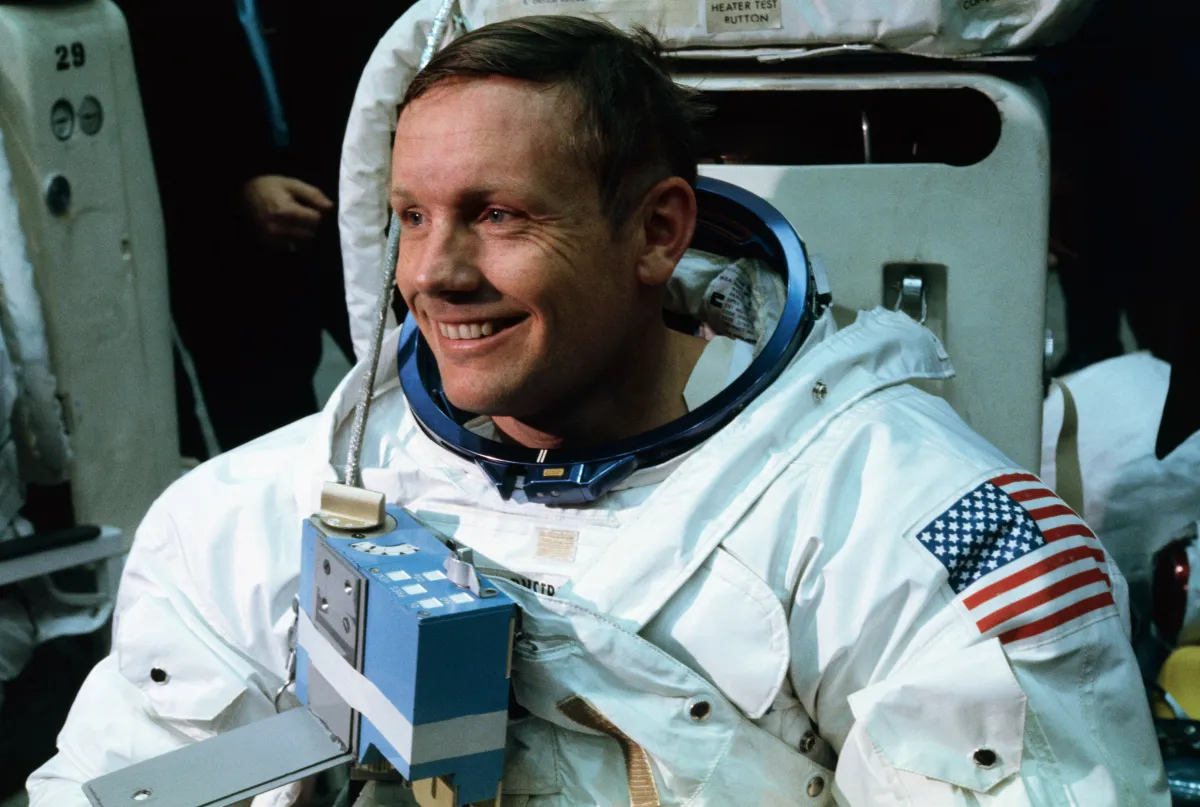
Neil Armstrong
Aerospace engineer, naval aviator, test pilot, astronaut and professor
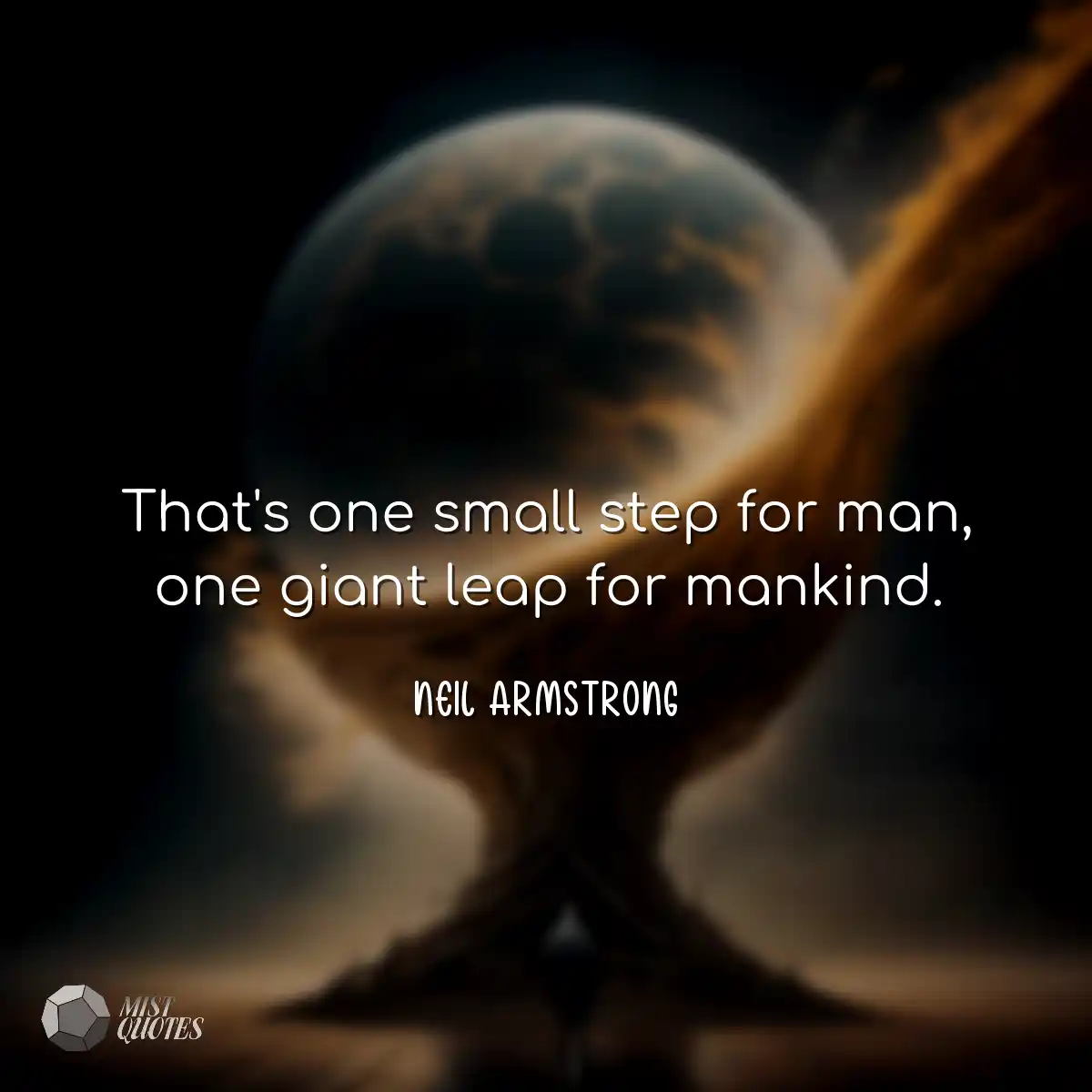
That's one small step for man, one giant leap for mankind.
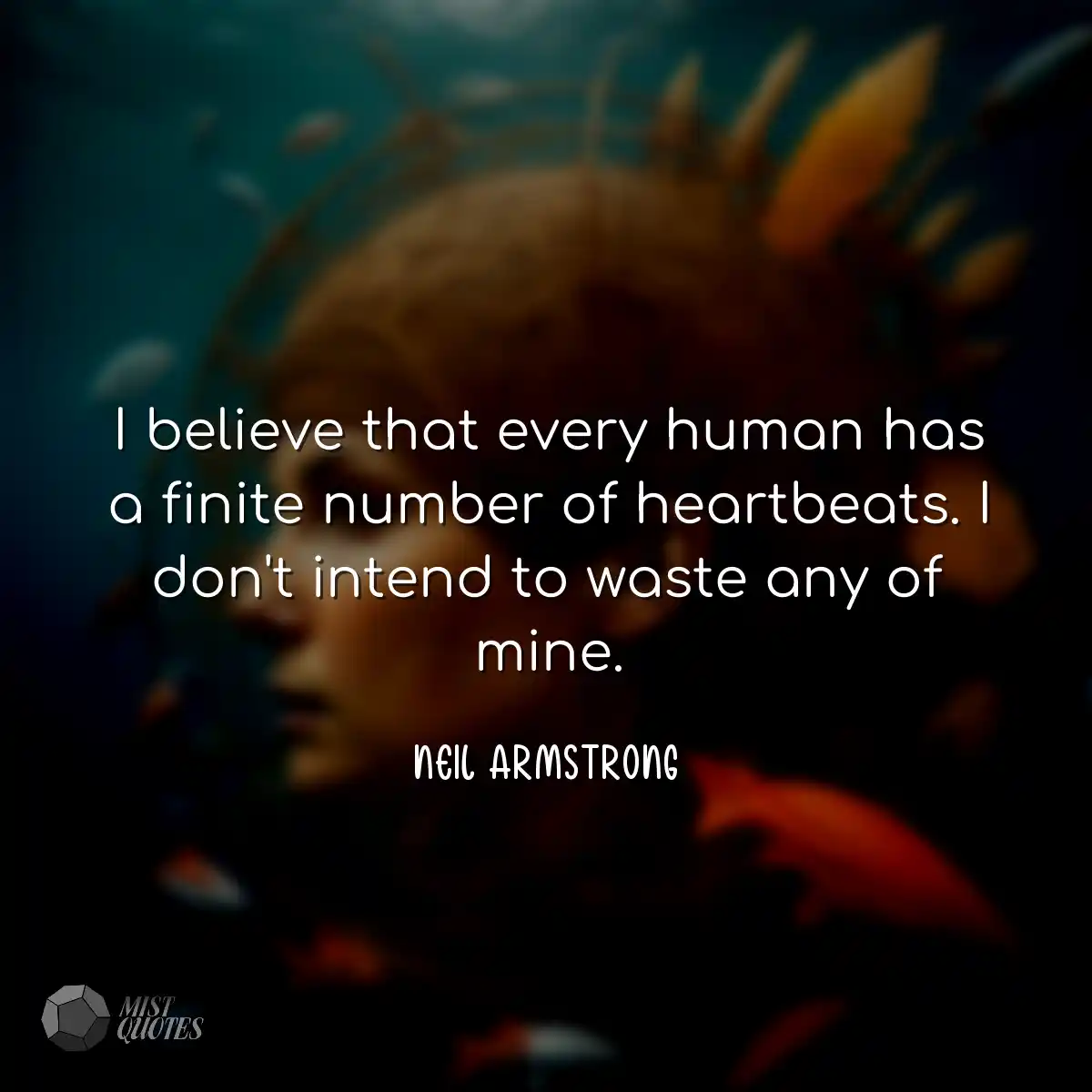
I believe that every human has a finite number of heartbeats. I don't intend to waste any of mine.
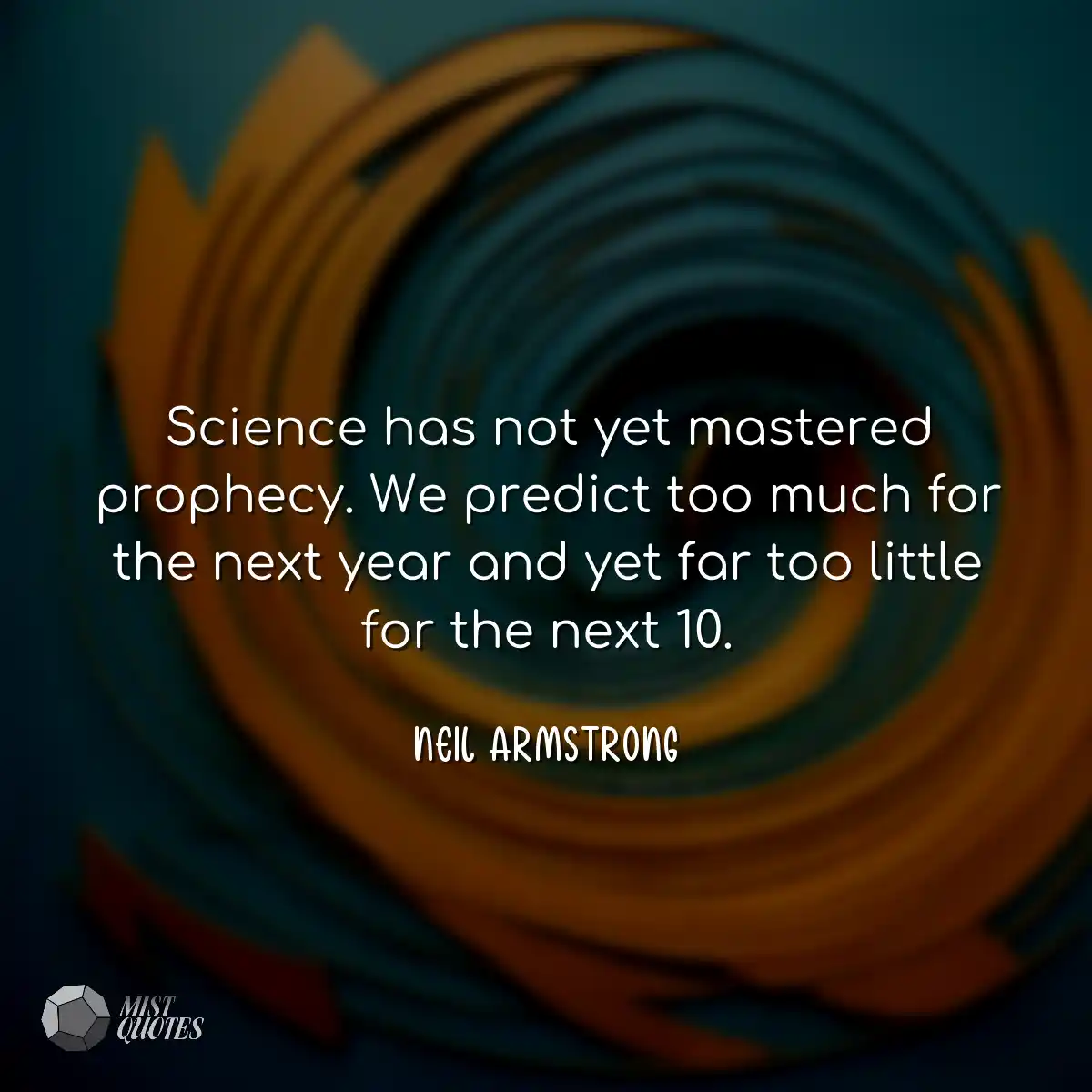
Science has not yet mastered prophecy. We predict too much for the next year and yet far too little for the next 10.
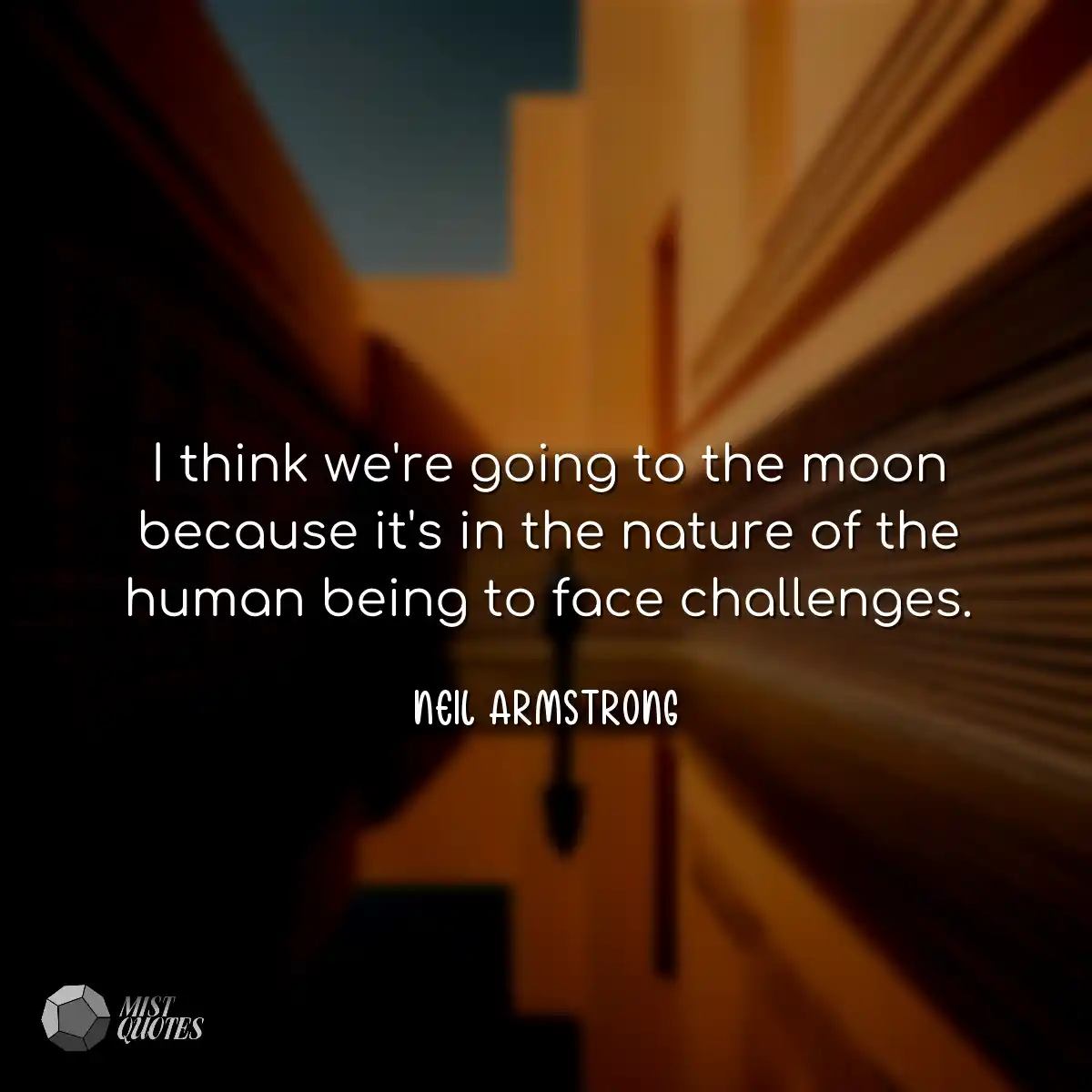
I think we're going to the moon because it's in the nature of the human being to face challenges.
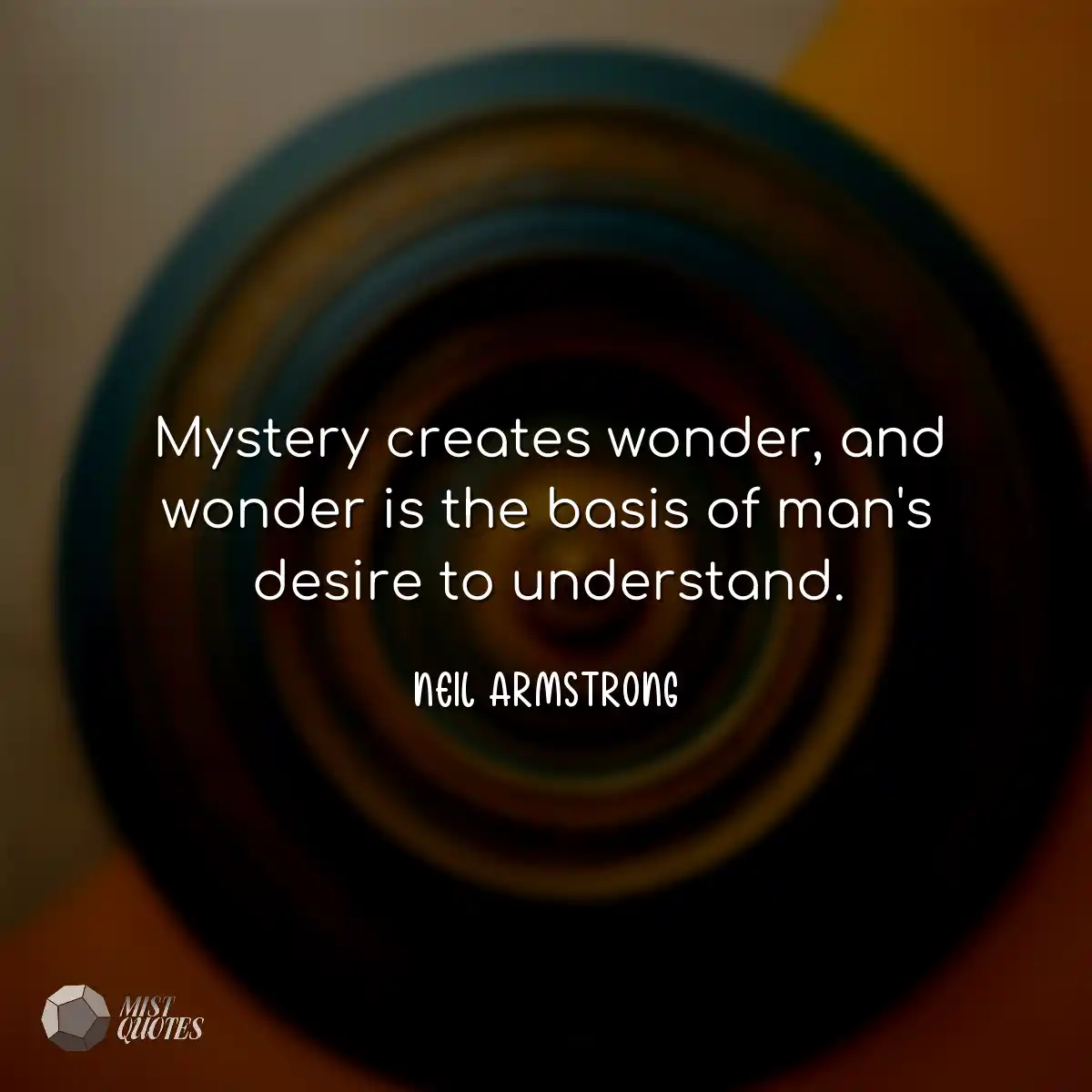
Mystery creates wonder, and wonder is the basis of man's desire to understand.

It's a brilliant surface in that sunlight.
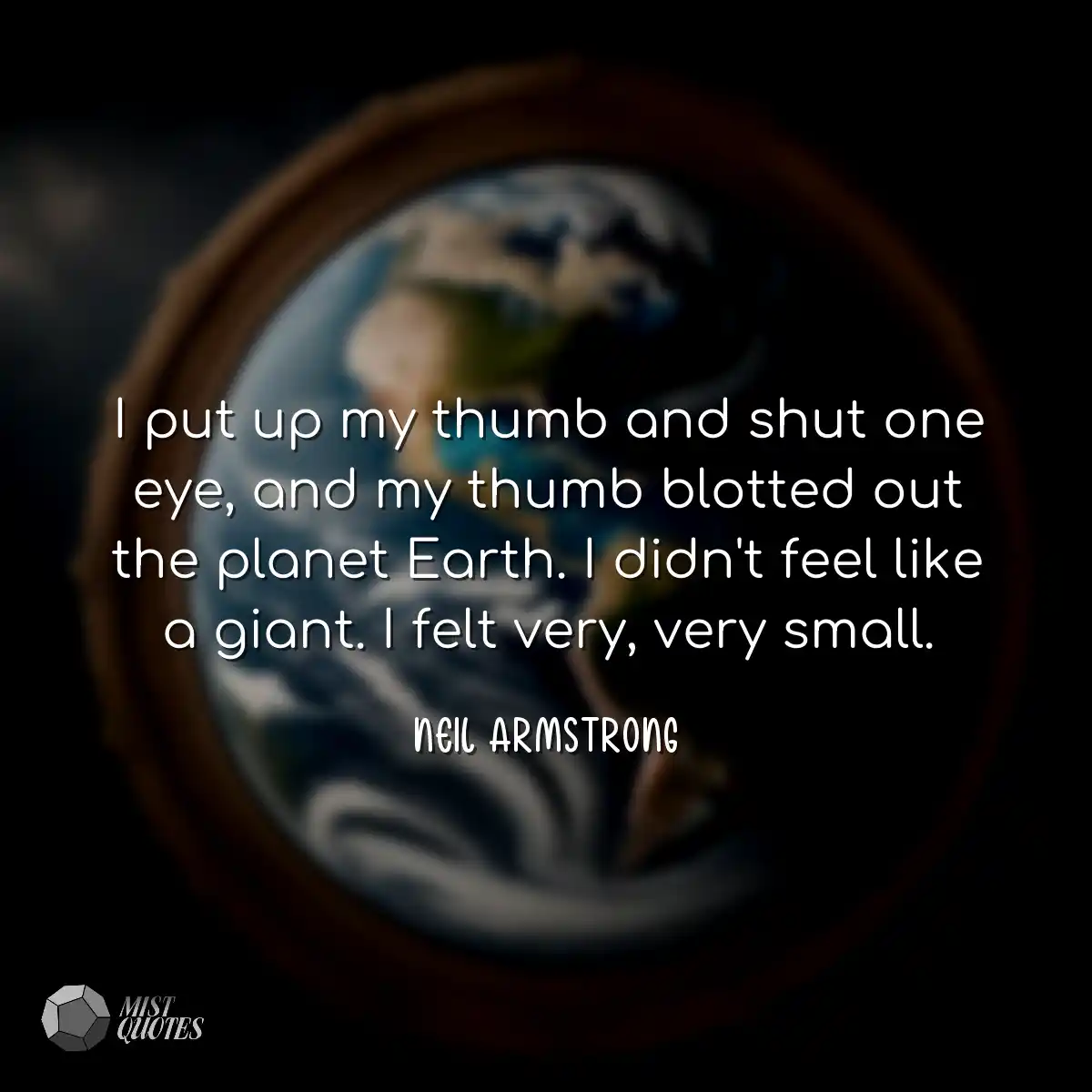
I put up my thumb and shut one eye, and my thumb blotted out the planet Earth. I didn't feel like a giant. I felt very, very small.
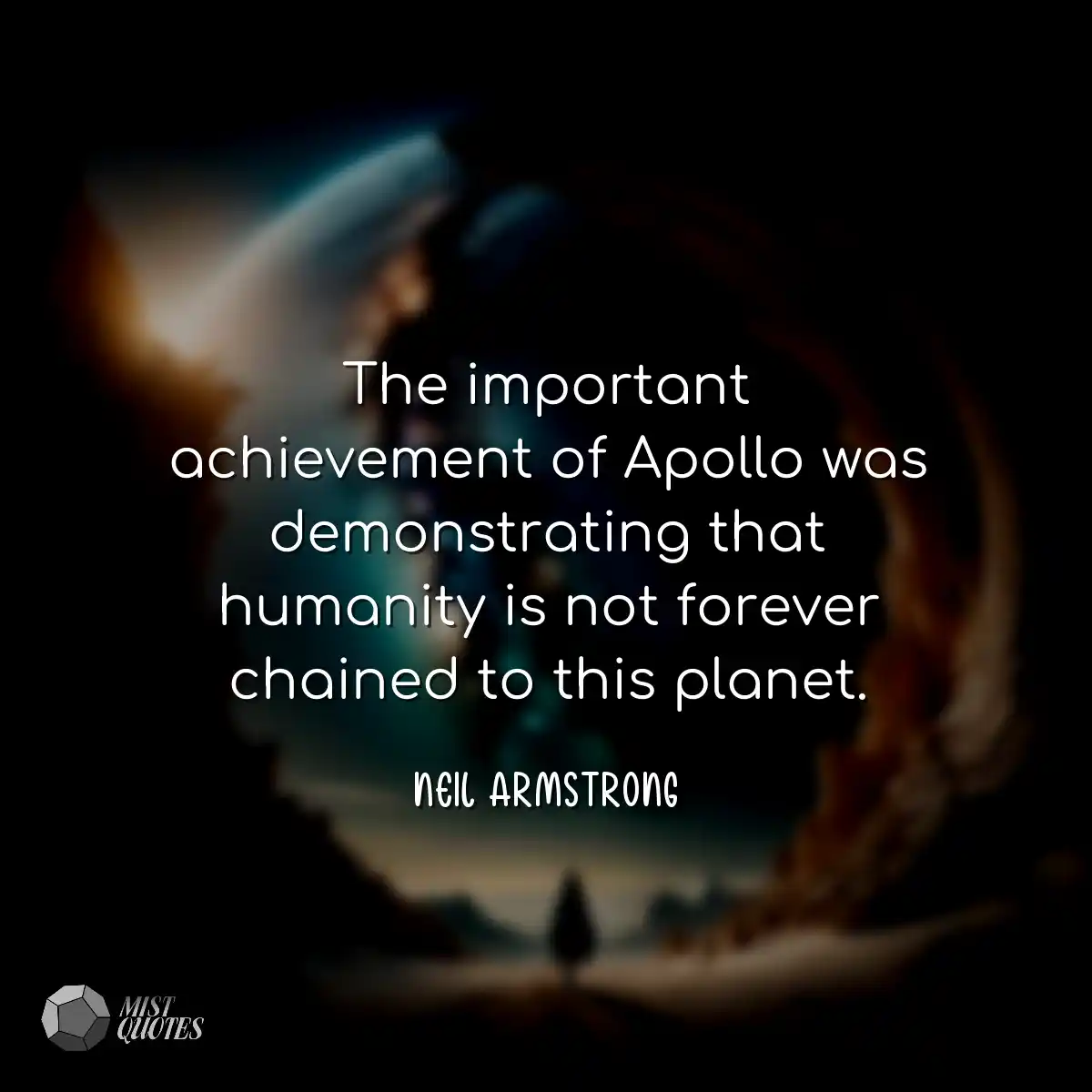
The important achievement of Apollo was demonstrating that humanity is not forever chained to this planet.
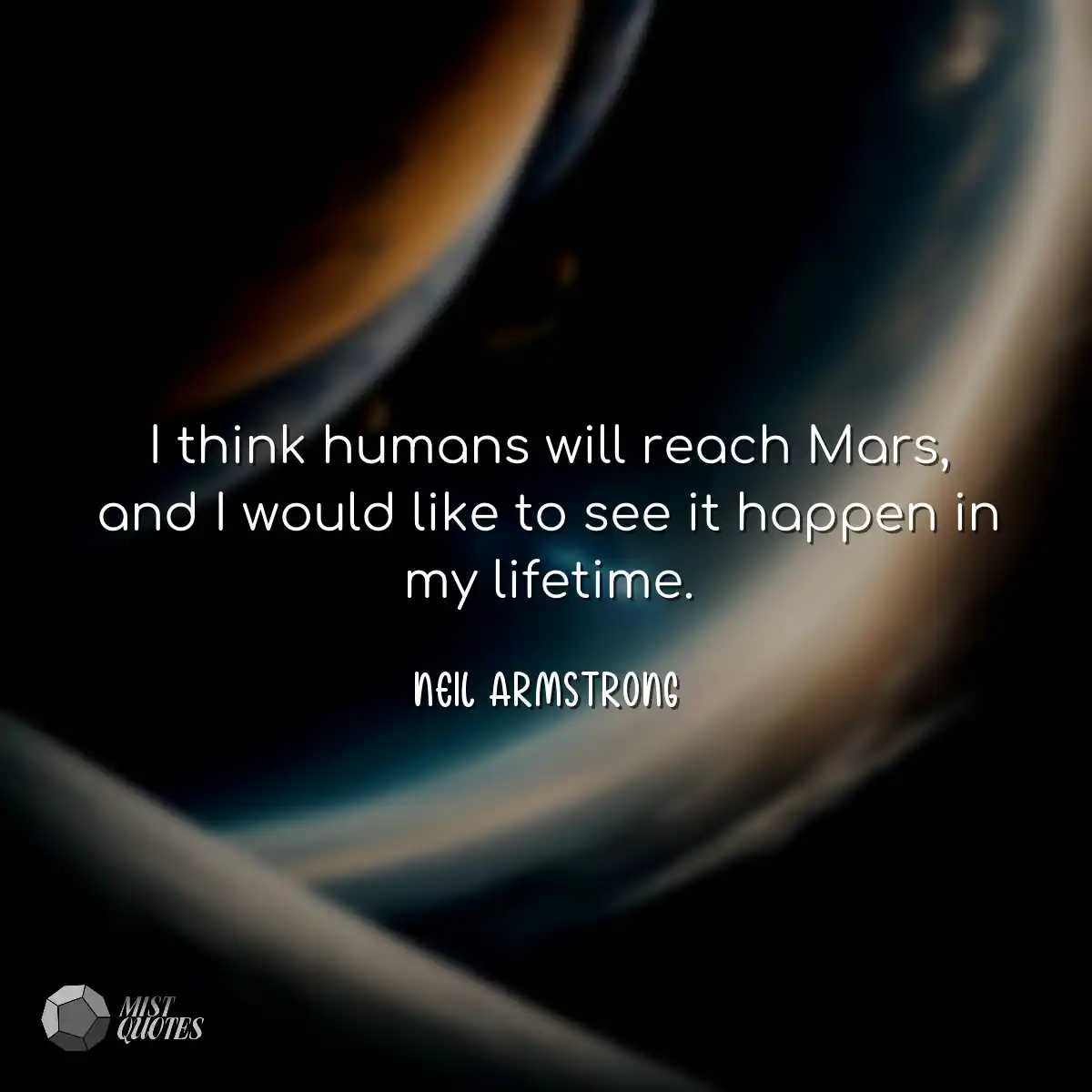
I think humans will reach Mars, and I would like to see it happen in my lifetime.
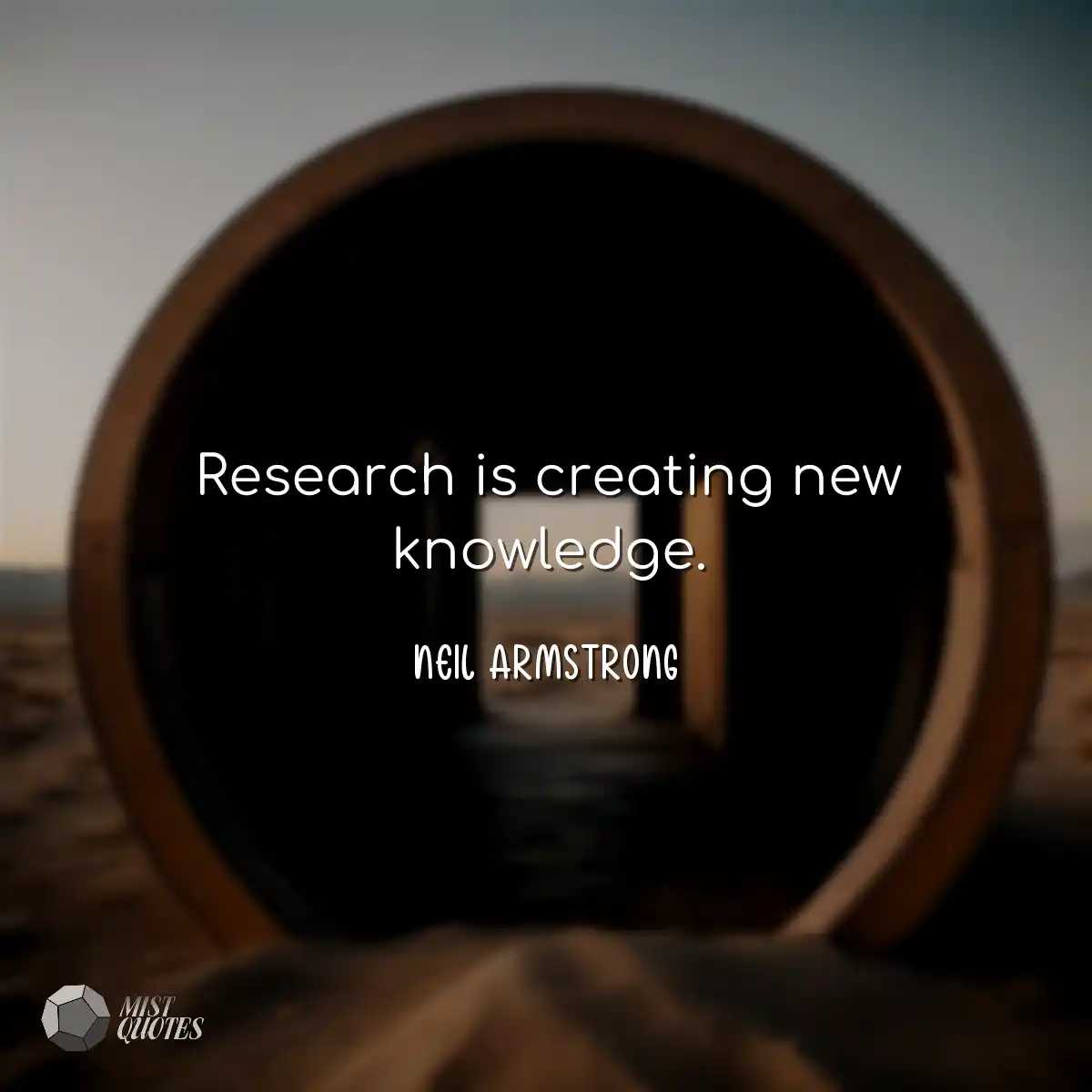
Research is creating new knowledge.
Neil Armstrong, an American astronaut, forever etched his name in the annals of human history when he became the first person to set foot on the Moon. His monumental achievement on July 20, 1969, during the Apollo 11 mission, was a testament to human ambition, scientific progress, and the relentless pursuit of exploration. This article delves into the remarkable life of Neil Armstrong, focusing on his accomplishments and the lasting impact of his journey to the Moon.
Born on August 5, 1930, in Wapakoneta, Ohio, Neil Alden Armstrong developed a fascination with flight from an early age. He was an avid reader and a talented pilot, having obtained his student pilot's license at the age of 16. Armstrong's passion for aviation led him to pursue a degree in aeronautical engineering at Purdue University, where he excelled academically and further honed his skills as a pilot.
Neil Armstrong's journey to becoming an astronaut began in 1962 when he joined the National Aeronautics and Space Administration (NASA). He quickly distinguished himself as a capable and reliable pilot, and his contributions to various projects earned him a place among the elite astronauts selected for the Apollo program.
Armstrong's most significant achievement came on July 16, 1969, when he, along with fellow astronauts Buzz Aldrin and Michael Collins, embarked on the historic Apollo 11 mission. As the spacecraft descended towards the lunar surface, Armstrong famously radioed, "Houston, Tranquility Base here. The Eagle has landed." Hours later, he stepped off the lunar module's ladder and onto the Moon's surface, delivering the iconic phrase, "That's one small step for man, one giant leap for mankind."
Neil Armstrong's feat of being the first person to walk on the Moon was a remarkable accomplishment that captivated the world and forever changed our understanding of space exploration. His bravery and determination in the face of the unknown inspired generations of scientists, engineers, and dreamers.
Armstrong's contributions extended beyond his historic lunar landing. As a test pilot, he flew over 200 different aircraft and played a vital role in the development of several spacecraft. After leaving NASA in 1971, Armstrong served as a professor of aerospace engineering at the University of Cincinnati, sharing his knowledge and experiences with future generations.
Neil Armstrong's legacy goes far beyond his astronautical achievements. He became an international symbol of human accomplishment and a source of inspiration for countless individuals pursuing careers in science, technology, engineering, and mathematics (STEM). He received numerous accolades, including the Presidential Medal of Freedom, the highest civilian award in the United States.
Neil Armstrong's indelible mark on history as the first person to set foot on the Moon solidified his place as a pioneer in the exploration of space. His unwavering dedication, courage, and unwavering commitment to pushing the boundaries of human knowledge continue to inspire and motivate us to reach for the stars. Neil Armstrong will forever be remembered as an icon of human achievement and an emblem of the limitless potential of the human spirit.
Recent Quotes
"To help a friend in need is easy, but to give him your time is not always opportune."
Charlie Chaplin
"Life can be wonderful if you're not afraid of it. All it takes is courage, imagination… and a little dough."
Charlie Chaplin
